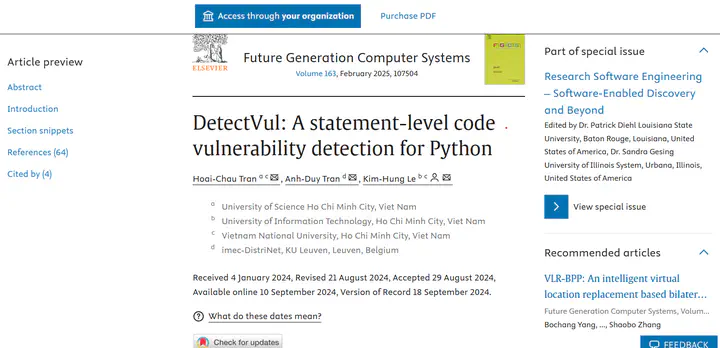Pioneering Research on Python Code Vulnerability Detection Published

We are proud to announce the publication of innovative research in the esteemed international journal, Future Generation Computer Systems. This work marks a significant step forward in software security. The paper, titled “DetectVul: A statement-level code vulnerability detection for Python,” was published in September 2024.
The research introduces “DetectVul,” a novel approach designed for statement-level detection of vulnerabilities within Python source code. This study addresses the critical need for more precise and effective tools to identify security flaws in software development. The key contribution of DetectVul lies in its ability to accurately pinpoint vulnerable patterns directly at the statement level by applying self-attention mechanisms, thereby enhancing the granularity and effectiveness of vulnerability detection in Python projects without the need for complex graph extraction processes.
The significance of this research is substantial for the software development community, particularly for those working with the Python language. By enabling more accurate and early detection of vulnerabilities, DetectVul can help developers build more secure applications, reduce the risk of cyberattacks, and improve overall software quality. This advancement contributes to the ongoing efforts to strengthen software security and protect systems from potential exploits in future generation computer systems.
Our institution highly commends the dedication and innovative spirit demonstrated in this research. We congratulate the authors, Hoai-Chau Tran, Anh-Duy Tran, and Kim-Hung Le, on this significant academic achievement. Their work in Future Generation Computer Systems is a valuable addition to the field of software engineering and cybersecurity, and we anticipate its positive influence on developing more secure software.